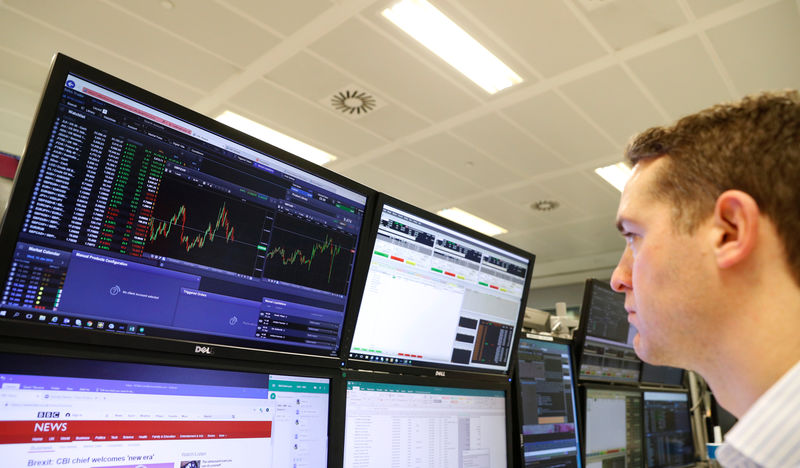By Julien Ponthus, Helen Reid and Josephine Mason
LONDON (Reuters) - While markets are buying the view that the historic defeat suffered by Prime Minister Theresa May in parliament cuts the chances of a chaotic Brexit, some financial advisors are urging clients not to overestimate their ability to make bets on British politics.
The overwhelming rejection of May's deal to leave the European Union has, so far, triggered a mild rise in the pound, lured buyers into domestic British companies and been a slight positive for Ireland's top share index (ISEQ), a barometer of Brexit sentiment.
Some investors have started covering bearish short positions in British banks and housebuilders, among the sectors hit hardest by uncertainty over Britain's painful divorce from the European Union. (L) [FRX/]
But wealth managers are warning investors against piling into UK assets given more uncertainty lies ahead, illustrated initially by a confidence vote in the government on Wednesday evening and lack of clarity about May's 'Plan B' for Brexit.
"We believe that investors are getting ahead of themselves," said Azad Zangana, a strategist at Schroders (LON:SDR), a view shared by Dean Turner, UK economist at UBS Global Wealth Management.
"UK assets will continue to be vulnerable to the political volatility and we don't expect this will subside until a concrete conclusion emerges," Turner argued.
"We do not advocate investors take directional views on sterling, gilts or UK stocks while this clarity void remains so large," he wrote to clients, adding that "investors would be wise to limit any UK exposure at benchmark levels".
Turner had already warned in November that while any person could take a view about how UK politics and Brexit might unfold, no one, given the very chaotic nature of politics, could actually claim to have an actionable edge over these events.
Philippe Waechter, chief economist of France's Ostrum Asset Management, also believes that humility is necessary.
"HUMBLE AND MODEST"
"One had to be humble and modest," he told Reuters, advising investors to be wary of the consensus view that a 'no-deal' Brexit was unlikely.
Still for some, Tuesday's vote and May's pledge to seek cross-party support for another draft agreement fuelled optimism that Britain will avoid a painful exit at the end of March, potentially reinvigorating the UK market's appeal for investors.
"It's a good entry point", for long-term investors even with short-term volatility ahead, said Charles St Arnaud, a strategist at Lombard Odier Investment Managers.
Investors have shunned or cut exposure to UK stocks and sterling over the past two years amid worries about a hard departure from the bloc and the potential damage to Britain's economy.
Bank of America (NYSE:BAC) Merrill Lynch's latest survey showed UK stocks were still the least favoured by both global and European investors.
However, even among analysts who believe in a positive end-game for UK assets, the long and winding road to Brexit simply means too much volatility to take immediate action.
For Michael Strobaek, global chief investment officer at Credit Suisse (SIX:CSGN), "the ongoing political uncertainty and UK economic weakness means we remain neutral on UK equities."
And there is no shortage of negative scenarios ahead.
Paul O'Connor, head of the UK-based multi-asset team at Janus Henderson, warns that if a cross-party Brexit deal is agreed, a change of prime minister would likely follow and a new eurosceptic Conservative leader might trigger more confusion and limit the upside for UK assets.
"Basically it means that no sooner have we celebrated a soft Brexit, we have to start thinking about who's going to be handling (the next round of) negotiations."

"That shapes the strategic perception of the UK. That's a story for the next few months and years."